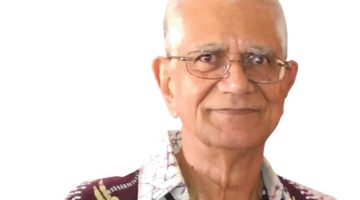 A well-established formula that Haiti’s mulatto elite employ to exercise power is called politique de doublure (“government of the understudy.”)
A well-established formula that Haiti’s mulatto elite employ to exercise power is called politique de doublure (“government of the understudy.”)
In this paradigm, black presidents, high-ranking army officers and a tiny black elite are in “power,” while the mulatto politicians pull the strings from behind the scenes.
Charles Arthur and Michael Dash, editors of the book Libéte: A Haiti Anthology report that, “This system barely masked a continuing and deep-seated social antipathy between mulatto and black elites.”
Under the United States occupation of Haiti from 1915 to 1934, blacks and mulattos came together as Haitian nationalists. But once the U. S. Marines left the island, mulatto hegemony met opposition from an emerging black middle class.
In 1957, Francois Duvalier, a country doctor and leading member of the noiristes, a black middle class group of intellectuals, emerged politically. Duvalier won the general election for president of Haiti. The dictatorship of “Papa Doc” and his infamous para-military arm, known as the Tontons Macoutes, reigned beyond his death in 1971 as power was transferred to his 19-year-old son, Jean-Claude Duvalier.
In the scholarly book Haiti’s Predatory Republic, author Robert Fatton Jr., tells us that, “Haiti’s politics, from the fall of the Duvalier dictatorship on February 6, 1986 . . . is the story of the gradual demise of a moment of utopia that had seemingly liberated a people from decades of oppression, squalor, and poverty and given them the conviction that ‘everything was possible.’”
After the fall of Jean-Claude Duvalier, the so-called middle class politicos jockeyed for what Fatton calls “a minimal liberal democracy.” Fatton, who was born and raised in the Haitian elite, is a professor of government and foreign affairs at the University of Virginia.
Professor Fatton illuminates: “. . . but once the predators had vacated the seats of power and a founding election had taken away their right to rule, the bloc began to undermine the very minimal rights of liberal democracy.”
Aristide organized the fractured grassroots, the poor and near-poor into the Lavalas movement and regime (lavalas means flood; Fatton says it symbolizes “mass movement of the destitute.”)
Jean-Bertrand Aristide, the very educated liberation theology priest who came from the poor, won the 1990 election for president by a landslide. Aristide was overthrown by a coup in 1991 that Fatton assures “reflected the persisting capacity of the Haitian dominant class to unleash the most brutal violence against those forces that threatened to turn the change of regime into a change of state.”
Aristide was reelected in 2000, but was forced to leave both his presidency and country on Feb. 29, 2004 by “American Special Forces soldiers,” says TransAfrica founder Randall Robinson in his must-read book, An Unbroken Agony. Aristide and his New York-born, Haitian-American wife and attorney were flown to the landlocked Central African Republic with only the clothes they had on, save for a small bag carried by Mrs. Aristide. There, they remained under house arrest for two weeks until a group headed by Randall Robinson, his wife, and Congresswoman Maxine Waters got them to South Africa, where they still live peacefully as guests.
About Aristide’s abduction, Robinson makes a salient point wantonly overlooked by most news organizations, describing him as “Aristide, a democratic president who’d been elected twice by the largest margins on record for free elections in the Americas; the former priest, lodestar to the poor....”
One of Aristide’s organizing techniques included the constant repetition of aphorisms in Creole such as “fouchet divizyon pa bwe soup eleksyon,” you cannot eat the soup of democracy with the fork of division]!
So Aristide peacefully transferred presidential power to Rene Preval in February 1996. Preval peacefully did the same in February 2001, when Aristide resumed presidential power. Both victories were accomplished through the electoral process. But will the democratization of the state follow suit?
Haiti’s predatory democracy exists because there is no vibrant middle class and no large working class amid mammoth unemployment. Owing to the country’s very weak economic underpinning, its class structure is dependent upon scarce resources.
Professor Fatton says, “The result is a politique du ventre, [politics of the belly] generating a class of grands mangeurs [big eaters] bent on monopolizing public power to advance their private interests.”












No Comment